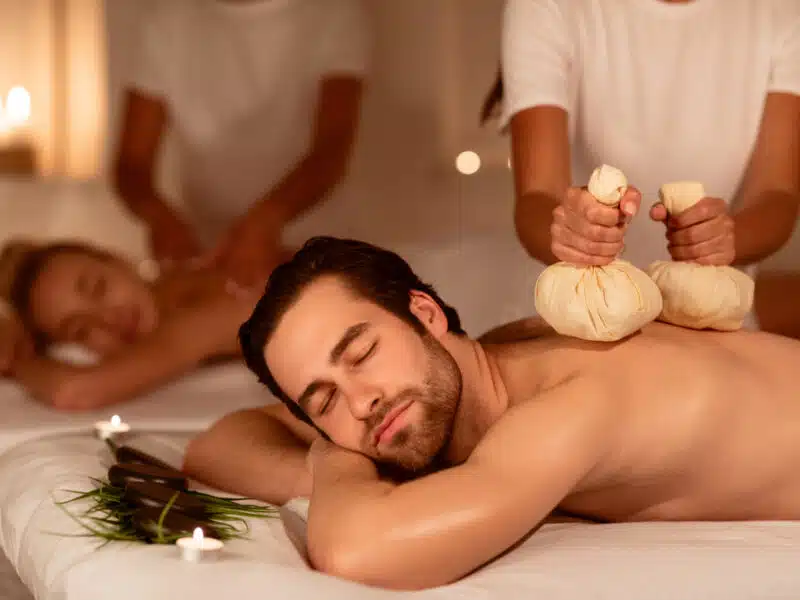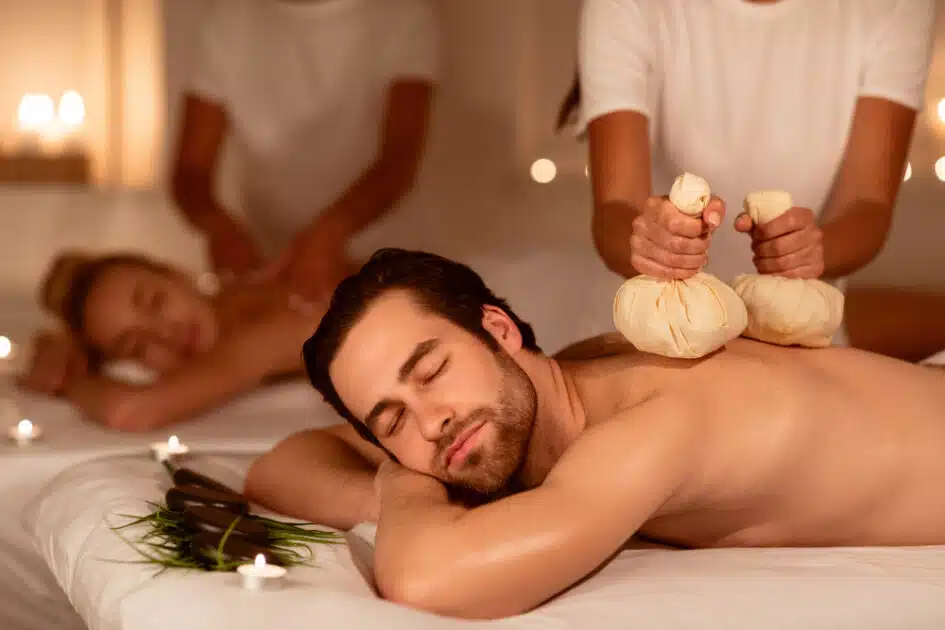How to Become a Masseur?

Steps, Skills, and Requirements for a Career in Massage Therapy
19th Apr, 2023
If you’re interested in the health and wellness industry and enjoy helping others feel relaxed and rejuvenated, becoming a masseur may be a great career choice for you.
The path to becoming a masseur involves completing specialized training, obtaining the necessary certifications, and developing the skills and techniques needed to provide effective and safe massages.

This blog will examine the procedures needed to become a masseuse and offer strategies and advice for people considering this vocation.
1. Get a High School Diploma
Getting a high school diploma or equivalent is a basic requirement for most massage therapy schools. This is because massage therapy programs are typically post-secondary programs that require students to have completed their secondary education.
It covers four subject areas: Language Arts, Social Studies, Science, and Mathematics.
If you don’t have a high school diploma, you can enroll in a GED program to obtain the equivalent. Many community colleges, adult education centers, and online learning platforms offer GED programs. The program usually consists of classes that prepare you for the GED test, which can be taken at an official testing center.
2. Choose a Massage School
Selecting the best massage school is a crucial choice that might affect your future as a Masseur. Choosing the finest massage therapy school for you might be stressful because there are so many of them in the country.
Consider factors such as location, cost, program length, and class schedule.
It’s also important to look for schools that are accredited by reputable organizations such as the Commission on Massage Therapy Accreditation (COMTA) or the National Certification Board for Therapeutic Massage and Bodywork (NCBTMB). Accreditation ensures that the school meets high standards of education and training and that graduates will be eligible for licensing or certification in most states.
Once you’ve identified some potential massage therapy schools, consider visiting them in person or attending an open house event. This can give you a chance to meet with faculty and students, see the facilities and equipment, and get a sense of the school’s culture and atmosphere.
3. Complete a Massage Therapy Program
Completing a massage therapy program is an essential step in becoming a professional masseur. These programs typically take anywhere from six months to two years to complete, depending on the school and the program’s structure.
During your massage therapy program, you’ll learn a variety of skills and techniques related to massage therapy. You’ll study anatomy and physiology to gain a better understanding of the human body’s structure and function. This knowledge is essential for being able to identify and target specific muscles and tissues during a massage session.
You’ll also learn various massage techniques, including Swedish massage, deep tissue massage, hot stone massage, and more. You’ll practice these techniques in a supervised setting to gain practical experience and build your confidence.
In addition to massage techniques, you’ll also learn important business skills that can help you succeed as a professional masseur. These may include marketing, customer service, and financial management.
Most massage therapy programs also require you to complete a certain number of supervised massage hours before you can graduate. This is typically done through clinical practice or internships, where you’ll have the opportunity to work with real clients and gain valuable hands-on experience.
By the time you complete your massage therapy program, you’ll have a solid foundation of knowledge and skills to begin your career as a masseur. You’ll be well-versed in anatomy and physiology, proficient in various massage techniques, and equipped with the business skills needed to run a successful practice.
Several methods and techniques to improve your skills:
Reccomended: How to Massage, Techniques, Tips, and 9 Ways to Take Things to the Next Level
4. Get a License or Certification
Getting a license or certification is a crucial step in becoming a professional masseur. However, in general, there are several steps you’ll need to take to obtain your license or certification.
First, you’ll need to pass a licensing or certification exam. You’ll need to demonstrate your knowledge and proficiency in these areas to pass the exam.
In addition to passing the exam, you’ll also likely need to submit a background check. This is to ensure that you have a clean criminal record and are a safe and trustworthy practitioner.
After obtaining your license or certification, you’ll need to complete continuing education courses to maintain your license.
Some states may also require you to have liability insurance or adhere to certain ethical standards.
Obtaining a license or certification can provide numerous benefits to your massage therapy career. It demonstrates that you have met certain education and training standards, which can help you stand out to potential clients and employers. It can also provide you with greater job security and enable you to practice legally in your state.
5. Find a Job
Here are some tips to help you navigate the job search process:
Crafting a professional: and well-crafted resume and cover letter is essential when applying for a job as a masseur. These documents serve as the first impression that potential employers have of you, so it’s important to ensure they are polished and presentable. Your chances of being recruited for the job you desire might be improved by using a quality resume and cover letter to highlight your abilities. Highlight your education, experience, and any specializations or certifications you have.
Network: Networking is a great way to find job opportunities in the massage therapy industry. Attend conferences, join professional organizations, and connect with other professionals in the field to learn about job openings and get referrals.
Utilize Online Job Boards: There are many online job boards specifically for massage therapists, such as MassageJobs.com and Massage Envy Careers. These websites let you look for job opportunities by region, industry, and degree of experience.
Build a Strong Online Presence: Many employers will research you online before hiring, so it’s important to have a strong online presence. Make a professional presence on social media or a website that highlights your abilities, knowledge, and offerings.
Be Professional and Prepared: When applying for jobs or attending interviews, be professional and prepared. Dress appropriately, arrive on time, and bring copies of your resume and any other relevant documents.
6. Build Your Skills
Continuing to develop your massage abilities will help you stay competitive in the massage therapy field and give your customers the finest possible service.
To improve your talents, try these strategies:
Attend classes for Continuing Education: Along with professional associations like the American Massage Therapy Association (AMTA) and the National Certification Board for Therapeutic Massage and Bodywork (NCBTMB), many massage therapy schools also offer these courses.
Concentrate on One Type of Massage: You may become an authority in that field and give your clients specialized care by focusing on a certain form of massage.
Acquire More Skills: There are several more skills you may master to improve your massage therapy practice in addition to massage methods. These may include aromatherapy, reflexology, or even business skills like marketing and financial management.
Attend conferences and workshops: An fantastic strategy to learn important information and discover fresh viewpoints on massage treatment from other business experts is to attend seminars and conferences. It’s an opportunity to learn from experts, stay updated with the latest trends and techniques in the field, and connect with other like-minded professionals. Attending these events also provides networking opportunities that could lead to new job openings or collaborations in the industry.
By building your skills over time, you can become a more effective and successful masseur.
Recommended: How Much To Tip A Masseur
What types of massage can I specialize in?
You can specialize in various types of massage, such as:
- Deep tissue massage: This type of massage uses steady, firm pressure on specific areas to address chronic pain and injuries.
- Acupressure: Known as Asian bodywork massage, this type of massage applies pressure to central body areas to release energy and promote self-healing.
- Stone therapy: Known as hot stone massage, this massage technique uses hot, smooth stones on certain body points for deep muscle therapy without discomfort.
- Reflexology: Reflexology philosophy states that applying pressure to body areas like the feet, hands, and ears influences organ function, aiding in pain relief and illness management.
- Swedish massage: Swedish massage uses gentle kneading strokes and light tapping to ease muscle tension and encourage relaxation.
- Shiatsu massage: Shiatsu, which means “finger pressure” in Japanese, includes rhythmic tapping on acupressure points of the body to release chi, or energy.
- Therapeutic touch massage: This massage technique uses hands on specific body points to channel healing energy, promoting relaxation and pain relief for the client.
- Pregnancy massage: This term encompasses various massage techniques tailored for pregnant individuals, involving targeted pressure application to alleviate pain, pressure, and stress.
- Sports massage: Massage therapists can focus on sports massage to assist athletes in injury prevention and enhancing flexibility.
The Bottom Line
Becoming a successful masseur requires education, practical skills, and personal traits. Complete a comprehensive massage therapy program, obtain proper licensure and certification, and gain hands-on experience to develop expertise and confidence. Possess excellent communication and interpersonal skills, professionalism, and ethical conduct.
Continuously seek opportunities for growth and development, such as specialized training courses and workshops. Dedication to providing exceptional client experiences and a passion for promoting well-being and relaxation will pave the way for a fulfilling career as a masseur. Remember to prioritize self-care to avoid burnout.















